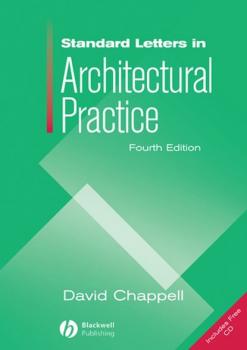Группа авторов
Список книг автора Группа авторовThe Market Approach to Valuing Businesses
Your Best Approach to Determining Value If you're buying, selling, or valuing a business, how can you determine its true value? By basing it on present market conditions and sales of similar businesses. The market approach is the premier way to determine the value of a business or partnership. With convincing evidence of value for both buyers and sellers, it can end stalemates and get deals closed. Acclaimed for its empirical basis and objectivity, this approach is the model most favored by the IRS and the United States Tax Court-as long as it's properly implemented. Shannon Pratt's The Market Approach to Valuing Businesses, Second Edition provides a wealth of proven guidelines and resources for effective market approach implementation. You'll find information on valuing and its applications, case studies on small and midsize businesses, and a detailed analysis of the latest market approach developments, as well as: A critique of US acquisitions over the last twenty-five years An analysis of the effect of size on value Common errors in applying the market approach Court reactions to the market approach and information to help you avoid being blindsided by a litigation opponent Must reading for anyone who owns or holds a partial interest in a small or large business or a professional practice, as well as for CPAs consulting on valuations, appraisers, corporate development officers, intermediaries, and venture capitalists, The Market Approach to Valuing Businesses will show you how to successfully reach a fair agreement-one that will satisfy both buyers and sellers and stand up to scrutiny by courts and the IRS.
Business Skills All-in-One For Dummies
Find workplace success There are some things that will never go out of style, and good business skills are one of them. With the help of this informative book, you’ll learn how to wear multiple hats in the workplace no matter what comes your way—without ever breaking a sweat. Compiled from eight of the best Dummies books on business skills topics, Business Skills All-in-One For Dummies offers everything you need to hone your abilities and translate them into a bigger paycheck. Whether you’re tasked with marketing or accounting responsibilities—or anything in between—this all-encompassing reference makes it easier than ever to tackle your job with confidence. Manage a successful operation Write more effectively Work on the go with Microsoft Office 365 Deal with marketing, accounting, and projects with ease If you’ve ever dreamed about being able to juggle all your work responsibilities without ever dropping the ball, the book is for you.
Marketing the Professional Services Firm
Professional services are estimated to be worth up to $700 billion worldwide, but as the market matures there is an urgent need for new marketing thinking for global players or small businesses alike. This book applies the core principles of strategic marketing to professional services for the first time, in an approach that is at once accessible and compelling. With case studies from a range of companies including J. Walter Thompson, market research companies, the ?big four? accounting firms, Headhunters, Interbrand and large US legal firms, it is intended to become the definitive book for effective strategic marketing in professional services.
The Life of Daniel Defoe
The Life of Daniel Defoe examines the entire range of Defoe’s writing in the context of what is known about his life and opinions. Features extended and detailed commentaries on Defoe’s political, religious, moral, and economic journalism, as well as on all of his narrative fictions, including Robinson Crusoe Places emphasis on Defoe’s distinctive style and rhetoric Situates his work within the precise historical circumstances of the eighteenth-century in which Defoe was an important and active participant Now available in paperback
Late Antique and Medieval Art of the Mediterranean World
Late Antique and Medieval Art of the Mediterranean World is a much-needed teaching anthology that rethinks and broadens the scope of the stale and limiting classifications used for Early Christian-Byzantine visual arts. A comprehensive anthology offering a new approach to the visual arts classified as Early Christian-Byzantine Comprised of essays from experts in the field that integrate the newer, historiographical research into 'the canon' of established scholarship Exposes the historical, geographical and cultural continuities and interactions in the visual arts of the late antique and medieval Mediterranean world Covers an extensive range of topics, including the effect that converging cultures in late antiquity had on art, the cultural identities that can be observed by looking at difference of tradition in visual art, and the variance of illuminations in holy books
Standard Letters in Architectural Practice
This book provides over 300 standard letters for architects and contract administrators to use at all stages of contract administration. The letters are grouped into sections which correspond with the RIBA Plan of Work: the aim is to cover all the common situations encountered in practice. This Fourth Edition has been revised to take account of the extensive changes to virtually the whole of the JCT suite of building contracts. Unless otherwise stated, all letters are suitable for use with: · JCT Standard Building Contract (SBC) · JCT Intermediate Building Contract (IC) · JCT Intermediate Building Contract with contractor’s design (ICD) · JCT Minor Works Building Contract (MW) · JCT Minor Works Building Contract with contractor’s design (MWD) · JCT Design and Build Contract (DB) · GC/Works/1 (1998) With Quantities Contract The latest edition also takes account of the CDM Regulations 2007, the revised RIBA Code of Conduct and its associated guidance notes, and the RIBA standard agreements for the appointment of an architect issued in 2007. Architects and contract administrators spend a great deal of time writing letters of various types. Many of them are routine and repetitive in character, but they require proper consideration if potentially dangerous liability situations are to be avoided. The book will be of use not only to architects and contract administrators but also to project managers and employers’ agents.
Standard Letters in Architectural Practice
Architects and contract administrators spend a great deal of time writing letters of various types. Many of them are routine and repetitive in character, but they require proper consideration if potentially dangerous liability situations are to be avoided. This book provides some 285 standard letters for use at all stages of project administration. To assist the user, they are grouped into sections which correspond with the RIBA Plan of Work: the aim is to cover all the common situations encountered in practice. The book has been revised to take account of the latest contract revisions and many letters have been added. Unless otherwise stated, all letters are suitable for use with: JCT 98 WCD 98 IFC 98 MW 98 GC/Works/1 (1998) The latest edition also takes account of the three new RIBA Standard Forms of Agreement for Appointment of an Architect: SFA/99, CE/99 and SW/99 Although primarily written for architects and contracts administrators, the book will also be of use to project managers and employers’ agents under WCD 98. Contractors will also find much of interest.
Building Systems for Interior Designers
The first desk reference on technical building systems for interior designers Building Systems for Interior Designers is the first book to explain technical building systems and engineering issues in a clear and accessible way to interior designers. The technical knowledge and vocabulary presented here allow interior designers to communicate more effectively with architects, engineers, and contractors while collaborating on projects, leading to more accurate solutions for problems related to a broad range of other building considerations with an impact on interior design. Information on sustainable design is integrated throughout the book, making it a relevant tool for current and emerging trends in building design. Written in a straightforward, nontechnical style that maintains depth and accuracy, this book is the first complete text applicable to interior design courses and provides thorough preparation for the NCIDQ exam. Engaging, clear illustrations support the text, which is accessible to those without a math or physics background. Topics covered include: Heating and air conditioning systems Environmental issues Water and waste Thermal comfort HVAC systems Electricity Lighting Security and communications systems Fire safety Transportation systems With numerous case examples illustrating how interior designers apply this material in the real world, Building Systems for Interior Designers is a valuable book for students, as well as a practical desktop reference for professionals. Content from this book is available as an online continuing professional education course at http://www.wiley.com/WileyCDA/Section/id-320255.html#fire_safety. WileyCPE courses are available on demand, 24 hours a day, and are approved by the American Institute of Architects.
The Interior Design Business Handbook
Discover how you can run the practical side of your practice more profitably. This comprehensive guide to managing an interior design business gives you an arsenal of proven procedures and practical tools and techniques perfected over the course of some thirty years. New to this edition are sections on establishing an electronic office, the pros and cons of working alone and creating partnerships, hiring and working with off-site employees, and more. It also includes more than fifty sample forms and letters, such as an existing conditions survey and a letter of transmittal, that can easily be adapted to your own uses.
How to Invest in Structured Products
This book is essential in understanding, investing and risk managing the holy grail of investments – structured products. The book begins by introducing structured products by way of a basic guide so that readers will be able to understand a payoff graphic, read a termsheet or assess a payoff formula, before moving on to the key asset classes and their peculiarities. Readers will then move on to the more advanced subjects such as structured products construction and behaviour during their lifetime. It also explains how to avoid important pitfalls in products across all asset classes, pitfalls that have led to huge losses over recent years, including detailed coverage of counterparty risk, the fall of Lehman Brothers and other key aspects of the financial crisis related to structured products. The second part of the book presents an original approach to implementing structured products in a portfolio. Key features include: A comprehensive list of factors an investor needs to take into consideration before investing. This makes it a great help to any buyer of structured products; Unbiased advice on product investments across several asset classes: equities, fixed income, foreign exchange and commodities; Guidance on how to implement structured products in a portfolio context; A comprehensive questionnaire that will help investors to define their own investment preferences, allowing for a greater precision when facing investment decisions; An original approach determining the typical distribution of returns for major product types, essential for product classification and optimal portfolio implementation purposes; Written in a fresh, clear and understandable style, with many figures illustrating the products and very little mathematics. This book will enable you to better comprehend the use of structured products in everyday banking, quickly analyzing a product, assessing which of your clients it suits, and recognizing its major pitfalls. You will be able to see the added value versus the cost of a product and if the payoff is compatible with the market expectations.









